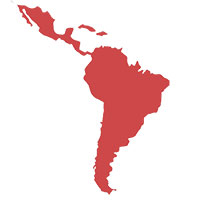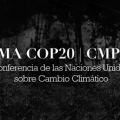Fossil of the Day : Peruvian Double Meanings
Sofía Szmirnov | December 8, 2014.
The UN climate change negotiations in Lima, COP20, were always going to be different. It was going to be bold, big and maybe even boisterous. Welcome to Latin America.
Or at least, welcome if you want to change the world. At the end of the talks in Warsaw last year, the Peruvians shared their vision for COP20 with the world: “Don’t come to Peru if you don’t want to change the world.”
And that’s what some have come to Peru hoping to do: build on the momentum of the UN Climate Summit and recent agreements on climate change from the EU, US and China. And the sentiment has been positive, especially for the last COP before Paris next year.
It would appear that there’s another side to Peru that the international community didn’t know about though. And it’s for this, Peru’s position, and the sheer cognitive dissonance between the two, that Peru has been awarded a Fossil of the Day on Monday, day seven.
Peru, to be fair, not too dissimilar from other countries, approaches environmental regulation differently at a domestic and international, often to the detriment of the issue at hand.
Let’s not discount that Peru, as hosts of this COP, has been doing a good job setting the pace of the negotiations, and challenging other parties to bring in some level of ambition and boldness into the conference rooms though.
At the helm of the negotiations, the minister of environment and COP20 president Pulgar-Vidal has been consistently pushing delegates to shift away from “business as usual” by creating a space for dialogue and high-level cooperation between states.
This may benefit the international process but stands in stark contrast to their domestic efforts. Just recently, Peru passed a law that decouples environmental protection from economic growth. This law will discredit relevant national authorities from regulating and supervising economic activity, with no regard for how it impacts the environment.
These inconsistencies may seem minor, or even ironic, but they could seriously hamper the negotiations. So, perhaps it is time to change the world after all today in Lima, and really, it should start at home, with Peru.













comment